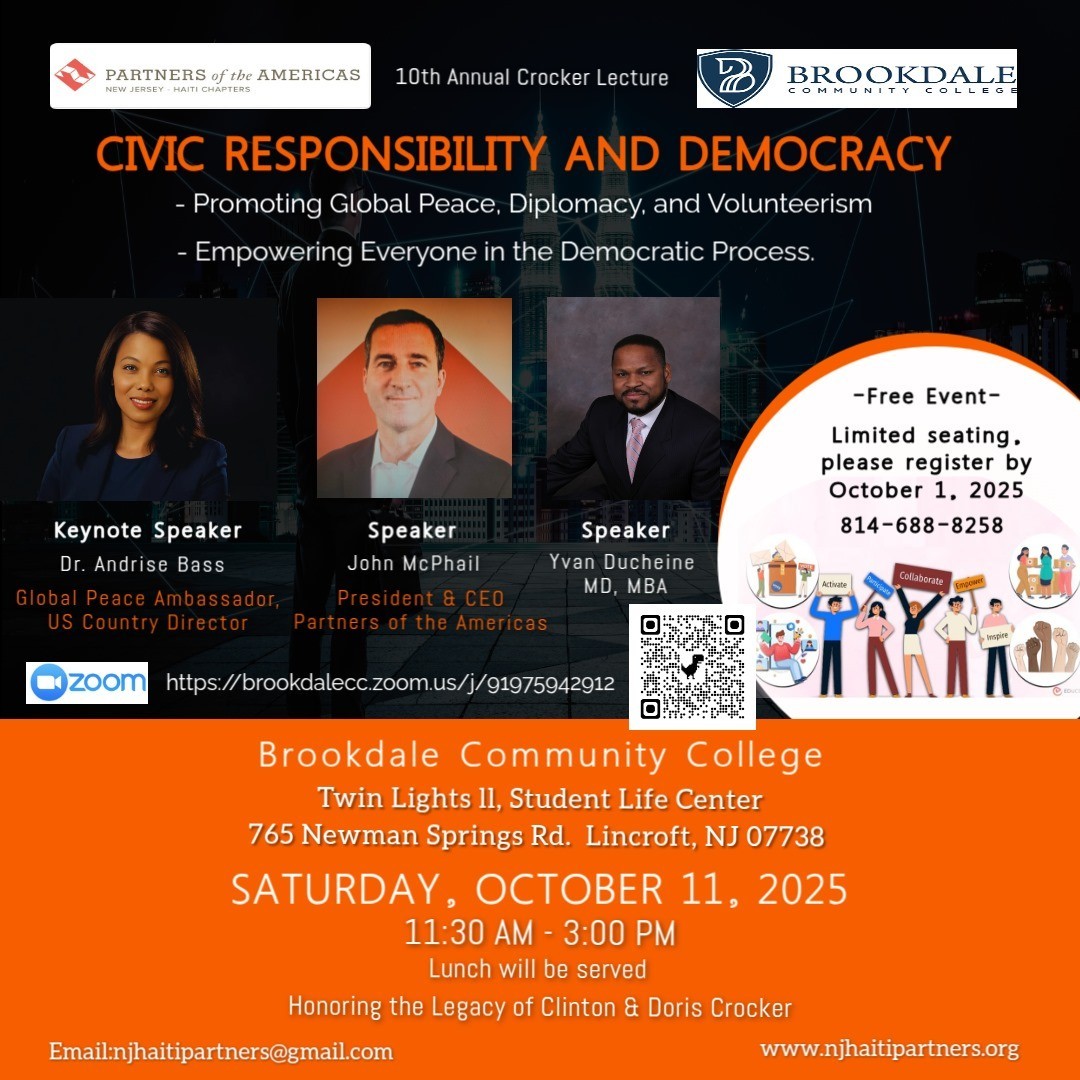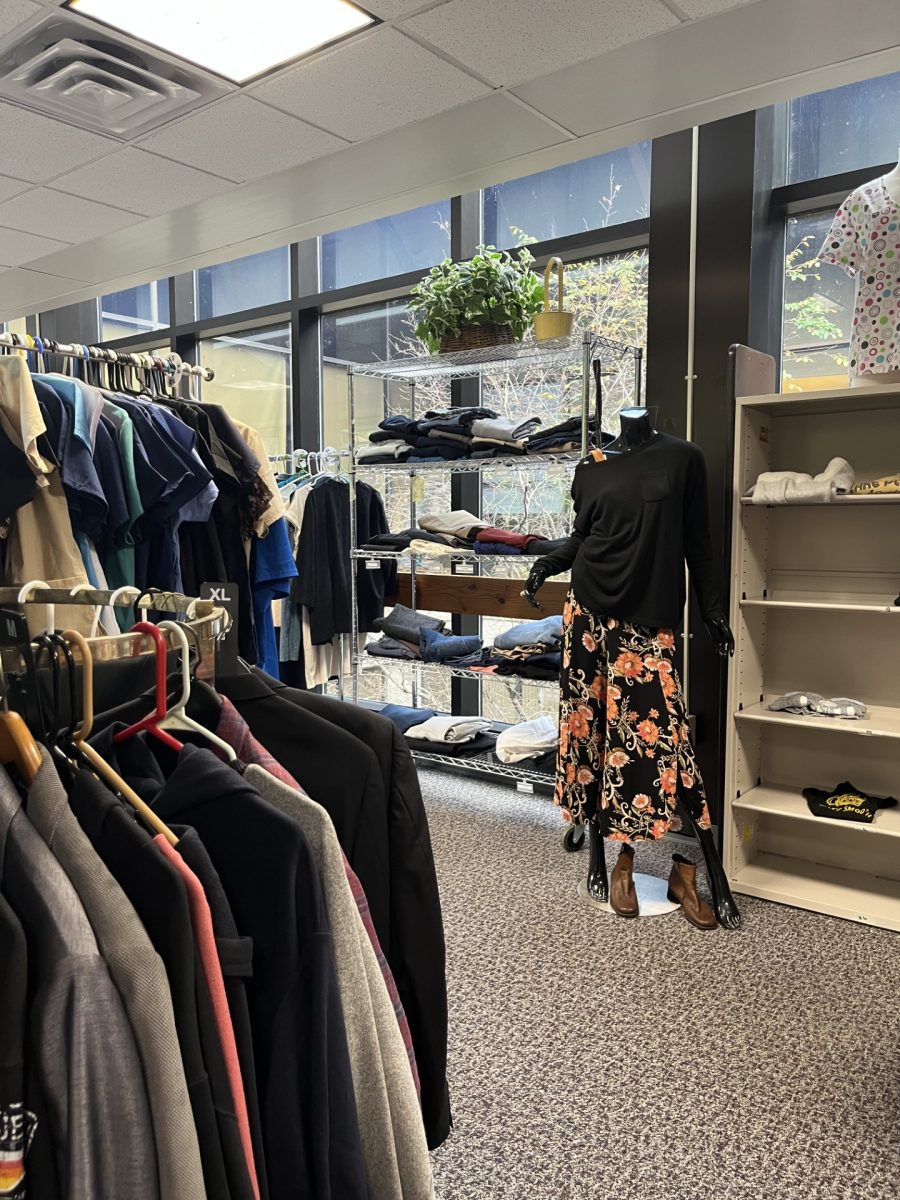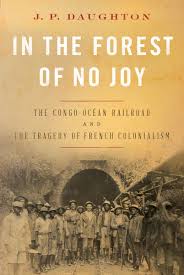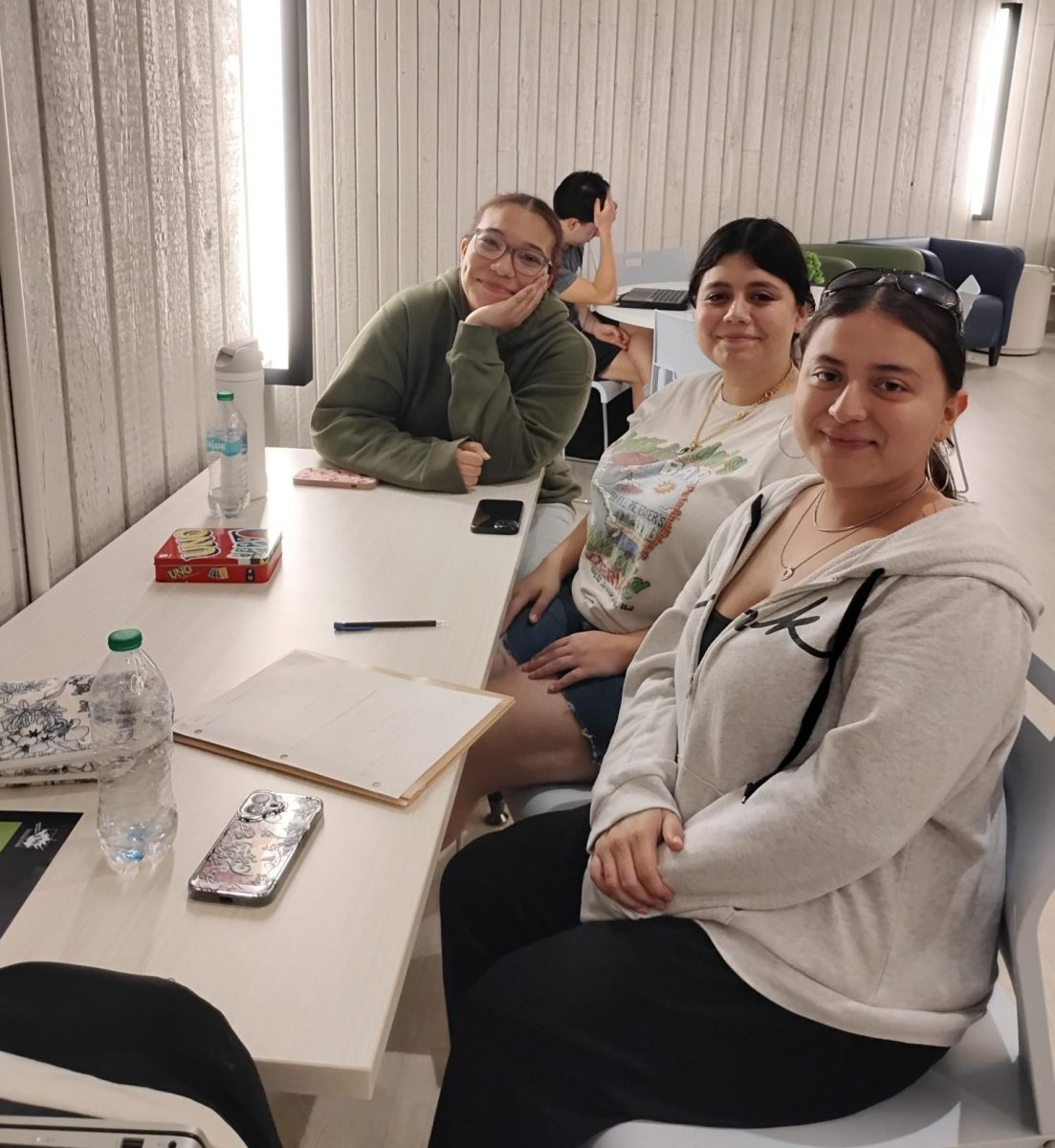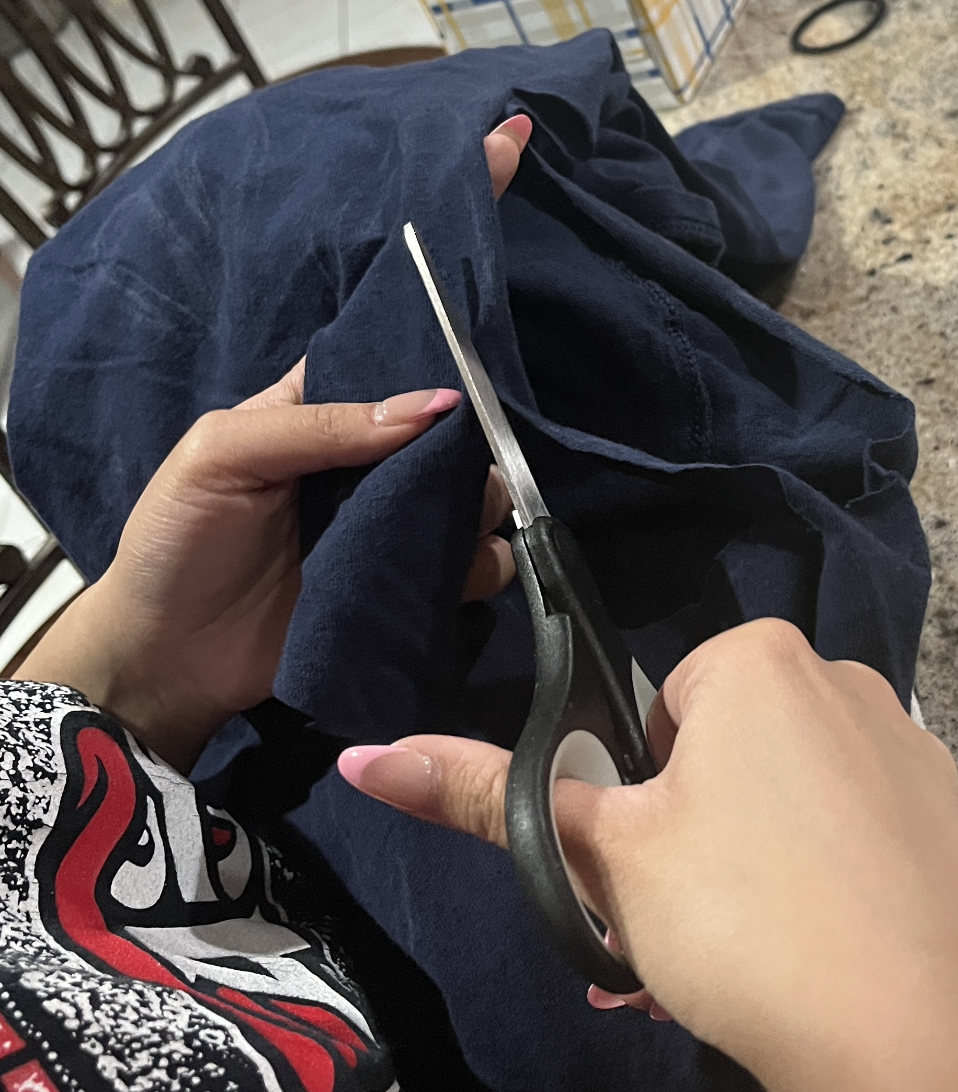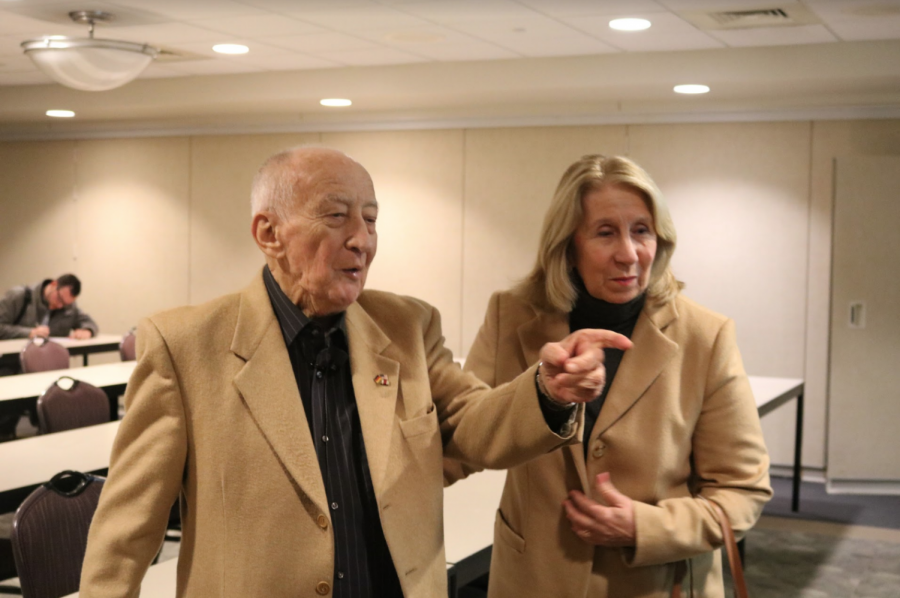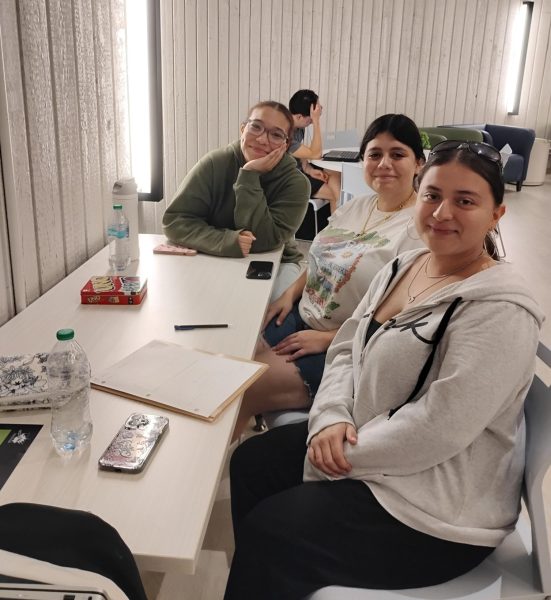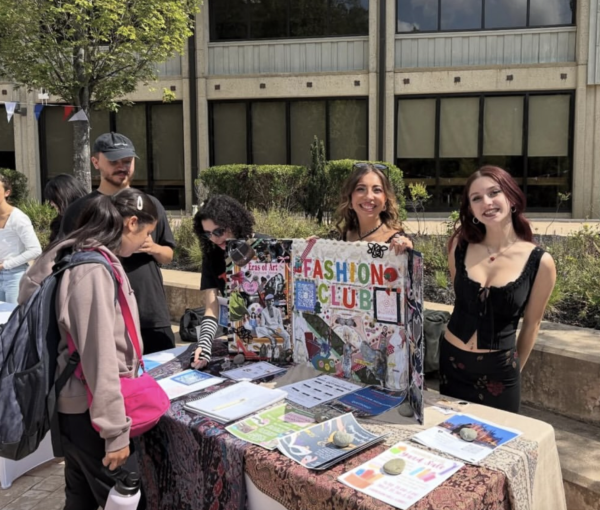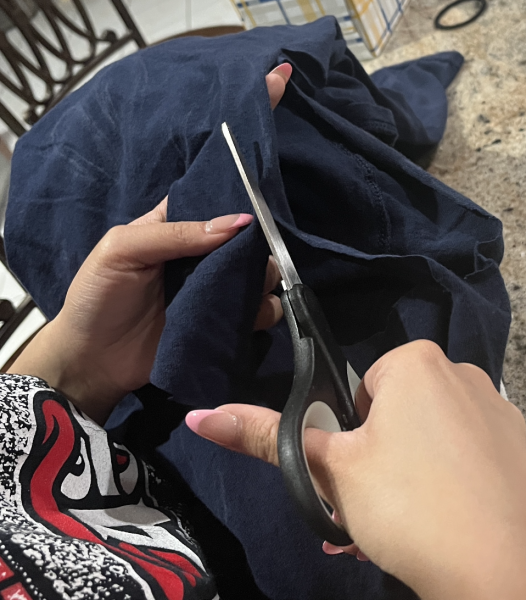Holocaust Survivor Reveals the World through His Eyes
Schwartz answers questions after event
Leslie Schwartz, 88, a Holocaust survivor and lifelong learner, revealed his truth to an audience gathered in the Twin Lights room at Brookdale Community College’s Lincroft campus on April 2.
Although initially wary to speak of his past, Schwartz is a “fighter” has now spent over a decade visiting the students of Germany to educate them about the Holocaust. Schwartz felt inspired by Max Mannheimer, another Holocaust survivor he knew from the Dachau concentration camp, to end his six-decade silence.
The packed audience of students and community members first watched a documentary of Schwartz’s past experiences on “The Mühldorf Train of Death.” Marc Bonagura, professor of English at Brookdale Community College and Director of the Center for World War II Studies and Conflict Resolution, then displayed a Powerpoint explaining more about Leslie’s life before opening the floor to Schwartz.
Schwartz was 14 when he was taken from his village in Hungary and placed in the Auschwitz-Birkenau concentration camp in Poland; he was 16 when he was freed. Over the course of two years, he was shot in the head, lost his mother and endured several other traumatic events, but Schwartz does not feel spiteful toward the perpetrators.
“It was never in me,” said Schwartz. “After returning to the schools, I saw these kids that were wonderful to me. I just wanted to live.”
Even when he was younger, Schwartz knew he had a deeper purpose in life that enabled him to not lose hope for a brighter future.
“Being I was a kid, I wanted to be a hero,” Schwartz said. “I wanted to live this through and tell my story.”
When Schwartz first landed in America, July 1946, he stayed in an orphanage in the Bronx briefly before being sent with a social worker to Los Angeles to live with his uncle. Schwartz could not speak English but started attending a school in Bull Heights, a “Jewish-populated area.” Schwartz struggled, but is grateful his teacher and he were able to communicate in Yiddish until she helped him become accustomed to the new culture.
Afterward, Schwartz said he received a job at a printing company called InkHouse in New York City, fell in love and worked in the city from then on. Eventually, he moved on to an insurance company and at last was able to also own a printing company.
The hardest part of Schwartz’s journey to educate others about the Holocaust was his inclination to cry when he first began speaking.
“It was emotional,” Schwartz said. “But a man [in the interviewing room when filming the documentary] said to me that if you cry they will not ask you questions.” Schwartz laughed after this statement, but with each passing day, he felt himself become stronger and knew his story needed to be told.
After moving to America, he felt discrimination from others. Schwartz discussed a time when he worked at his first printing company and he was a delivery boy. On days when it was freezing or raining they would say, “send the Jew.”
Schwartz then discussed the issue of racism that is presently occurring in the country.
“When I was liberated, by the U.S. Army, many of the Negro community brought us food and entertained us,” said Schwartz. “When I came in 1946, the racism in this country bothered the hell out of me. These men fought beside the white men.”
Although race relations have improved some, he believes there is a lot of work to be done.
At the closing of Schwartz’s presentation, Associate Professor Debbie Mura asked what he wanted people to remember after hearing him speak.
“I want people to remember this 14 year old kid who suffered so much, coped with it and now is at the age of 88 and is going strong,” Schwartz said.
He closed his presentation after reciting a poem called “The Legacy” to inspire his audience to never give up no matter what and to share the story of the Holocaust. The audience was then able to meet with Schwartz individually, take pictures and share their own stories.


